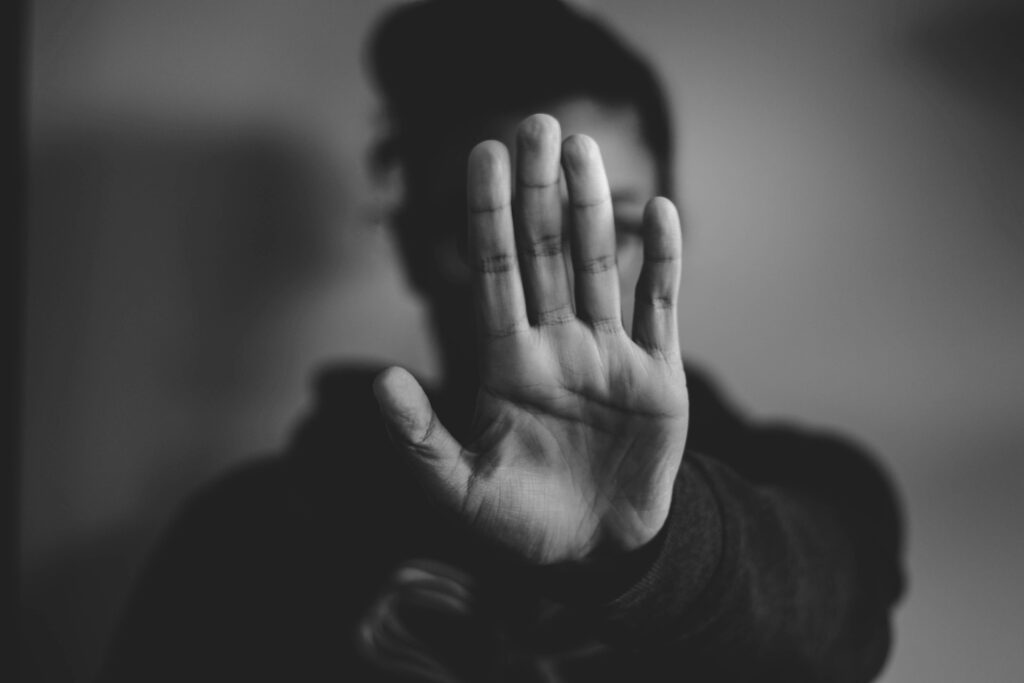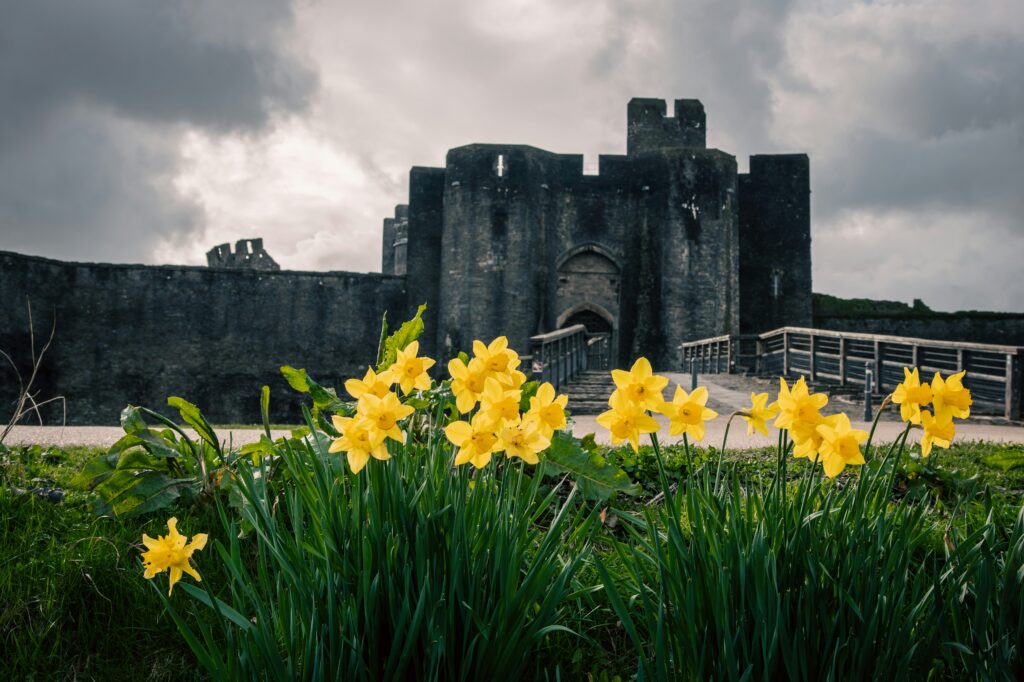A pilot project developed by the University of South Wales, in collaboration with Welsh Women’s Aid and Rhondda Cynon Taff Domestic Abuse Services, explores the value of creative engagement with the university for domestic violence and abuse survivors residing in local refuges.
On average, it takes seven attempts before a woman is able to leave an abusive relationship for good. Moving to refuge is a significant moment for any survivor of domestic violence and abuse (DVA) and an important step in their journey to safety. However, survivors still face challenges once residing in refuge, including becoming ‘stuck’ for increasingly long periods of time due to a lack of safe housing to move on to. We designed and piloted the Co-Creating Spaces of Change project (COSC) to alleviate some of the negative impacts faced by survivors while residing in refuge.
DVA and access to safe housing
A major global and UK issue, DVA causes serious harms and adverse outcomes (including emotional, physical, social and economic) (Addis & Snowden, 2021). Approximately 1.4 million women and 751,000 men in England and Wales experience DVA, and the estimated economic and social cost is £66 billion per annum. One in three women worldwide experience DVA and its disproportionate and devastating impacts on women are illuminated in homicide statistics across the globe. One in seven victims of domestic homicide in England and Wales are women, most of whom are killed by their current or former partner in or around their home (Brookman, 2022:127).
Accessing safe accommodation is increasingly difficult for survivors. The problem, fuelled by a housing shortage and unaffordable rent, is two-fold. Firstly, the lack of housing in Wales has reached crisis point, limiting the ability of survivors residing in refuge to find permanent accommodation and safely move on. What was intended as an emergency stop-gap measure has become a long-term residence, with some survivors waiting several years to exit refuge.
For some women, lack of safe housing leads them to stay with, or return to, an abusive partner, or can lead to homelessness. Notably, forty percent of homeless women cite DVA as a contributory factor to their homelessness.
Finding suitable move-on accommodation for survivors with more complex requirements, such as those with large families, is especially challenging. Secondly, as women stay stuck in refuge, bottlenecks and blockages prevent other survivors from gaining access to emergency safe spaces. To illustrate, 712 survivors were unable to access vital refuge services in Wales in 2023 due to lack of space. Both situations have negative impacts for the safety and wellbeing of women who have survived DVA and engaged in the difficult process of leaving an abusive relationship. For some women, lack of safe housing leads them to stay with, or return to, an abusive partner, or can lead to homelessness. Notably, forty percent of homeless women cite DVA as a contributory factor to their homelessness (Refuge, 2024).
Working with DVA survivors in refuge
The Co-Creating Spaces of Change (COSC) pilot project was developed by researchers at the University of South Wales, in collaboration with Welsh Women’s Aid and Rhondda Cynon Taff Domestic Abuse Services. The broad aim was to explore the value of creative engagement with the university for DVA survivors residing in local refuges. Specifically, we sought to (i) engage with service users in safe, fun and meaningful ways that might help to improve their time in refuge; (ii) explore the potential for empowerment by enhancing confidence, skills and opportunities to engage in higher education; and (iii) assess the wellbeing benefits of COSC to this group of survivors and, potentially, survivors in the future.
Syniadau uchelgeisiol, awdurdodol a mentrus.
Ymunwch â ni i gyfrannu at wneud Cymru gwell.
After consultation sessions with survivors in refuge and support staff, women accessed taster sessions for 14 consecutive weeks (April-July 2024) including creative writing, drama, filming, collage poetry, homicide investigation, yoga, and photography at our Treforest and Cardiff campuses. All sessions were facilitated by subject experts who were aware of the needs of the participant groups and a support worker attended each session, alongside a USW researcher. Transport and refreshments were provided and sessions were scheduled to ensure that women could continue to take their children to and from school and to accommodate the changing needs of residents transitioning in and out of refuge. In total fourteen women took part in the project with engagement ranging from one or two sessions through to one woman attending every session.
Findings
The service users completed a short Wellbeing Scale (SWEMWBS) at the beginning and end of the programme, and an evaluation questionnaire after each taster session. COSC achieved several positive impacts for the women who took part. While we cannot prove causality in this small study, it is of note that average wellbeing scores increased from 39.4 (pre-participation) to 45.8 (post-participation), indicating a significant increase in wellbeing.
Individual session feedback was overwhelmingly positive. All participants reported feeling happy, engaged, comfortable, safe and secure “all of the time” or “very often” during sessions. Women also reported “feeling relaxed”, gaining “new and interesting insights” and enjoying “meeting new people in a group setting”. Many of the women also indicated their interest in “learning more”.
In-depth interviews with some of the participants and staff, two months after the pilot had ended, revealed additional positive impacts, to which we now turn.
Benefits to mental health and wellbeing
Survivors spoke in particular about the benefits to mental health and wellbeing and highlighted that the sessions were fun, safe, confidence building and often inspiring, as illustrated in the following interview extract from a survivor who had recently moved to permanent accommodation at the time of interview:
Individual session feedback was overwhelmingly positive. All participants reported feeling happy, engaged, comfortable, safe and secure “all of the time” or “very often” during sessions.
“The days can be really long in there…and so it definitely helped with my mental health… getting out and being around other people, and just being able to have a little bit of a laugh does just lift you up a bit, you know? (Survivor).
Building Relationships and Spreading Positivity
Interviews also revealed that the benefits of engaging in university taster sessions resonated beyond the individuals who attended:
“…when people come back, who are lighter and enthused about something, it shifts the whole dynamic of the refuge. Every Thursday afternoon there was a shift in mood. So that was really good.” (Refuge Manager)
“It was definitely beneficial because…it got you out and amongst some of the other women in the refuge so you could build more relationships with people… I felt it sort of brought all the women together when we were going out.” (Survivor)
Gofod i drafod, dadlau, ac ymchwilio.
Cefnogwch brif felin drafod annibynnol Cymru.
Confidence building
Staff and survivors spoke of the value of this kind of creative engagement for helping the women to (re)gain confidence. One survivor, reflecting on her engagement, recounted:
“I felt quite proud of myself for going because I’m not very good at, like, chucking myself into meeting new people and things, but I think where I had the support of the support worker and other people in the house [refuge], that made me want to go then and then I met other girls … yeah, it was nice. Bit of confidence and things like that.” (Survivor)
The refuge manager noticed a marked change in one survivor who had rarely engaged in conversation with staff or other women in refuge:
“When she came back, there’s a little bit more confidence and probably I had more conversations with her after that than I ever had before… You sort of lose your identity when you’re in refuge, you’re one of them … and to go out there and… like re-establish yourself as a normal person who can do something interesting and speak to other people … that gives people a boost” (Refuge Manager)
Seeing beyond survivors’ issues
One unanticipated positive impact of COCS was the opportunities it afforded for refuge staff to see survivors in a different light:
“When I watched that [recording of filming session] you saw her personality in that and a very different sort of view of her. So people very much become their issue and then to see her in that setting, yeah, it wasn’t about whatever issue it was, this woman has [a] very distinct personality and a story.” (Refuge Manager)
One of the features of COSC that distinguishes it from other opportunities provided to women in refuge, is the focus on inspiring women to consider future study by making education and university feel accessible and attainable.
Inspired to study
One of the features of COSC that distinguishes it from other opportunities provided to women in refuge, is the focus on inspiring women to consider future study by making education and university feel accessible and attainable. Two survivors had been inspired to apply to study at the Open University after engaging in the pilot. One explained during the interview how she had been able to reach this turning point and start her degree in child psychology:
“Definitely going to the Uni [inspired me] and I think it just made me think about what I really wanted to do and you know, I have thought about it lots of times over the years, but then, with work and things and when you’re with somebody in that type of relationship and they constantly put you down, you think, you’re not good enough to do something like that.
And so, yeah, so definitely by going to the Uni and doing this and seeing people within the Uni and especially speaking to some of the tutors, and seeing it all, made me think “yeah, I definitely want to do a Uni course now”. (Survivor)
Future Opportunities
COSC supports the objectives of the Wellbeing of Future Generations (Wales) Act 2015 by increasing wellbeing and enabling DVA survivors to gain confidence and develop aspirations. The positive findings from this small, localised pilot project have set the foundations for continued dialogue and engagement with survivors and support staff. Three survivors have agreed to stay in regular contact with the researchers and collaborate on a longer-term vision to expand this co-produced work to other regions of Wales. The aspiration is to incorporate other survivor groups and additional support services in Wales who are committed to eliminating this form of violence.
Authors: Fiona Brookman is Professor of Criminology; Sarah Wallace is Senior Research Fellow; Emily Underwood-Lee is Professor of Performance Studies; Sophia Kier-Byfield is Senior Research Assistant and Sarah Tutsell-Buse is Criminology Research Intern at the University of South Wales.
All articles published on the welsh agenda are subject to IWA’s disclaimer. If you want to support our work tackling Wales’ key challenges, consider becoming a member.



